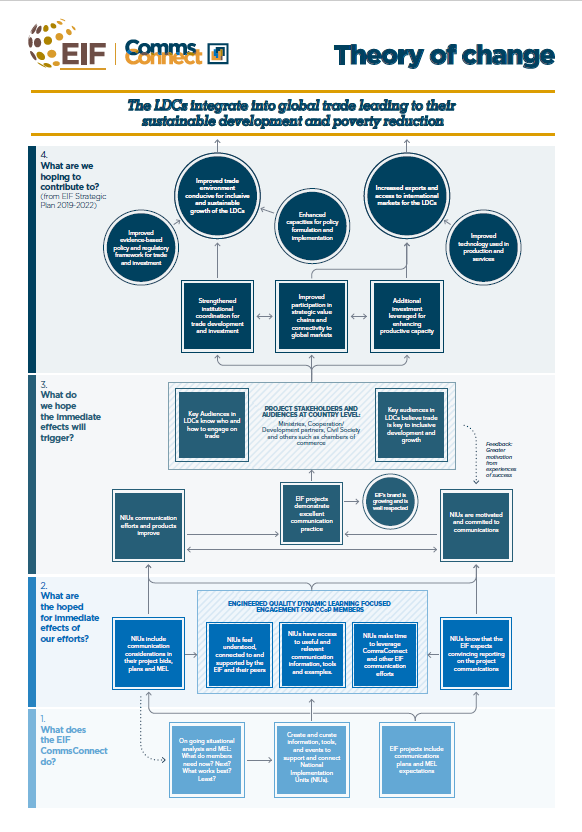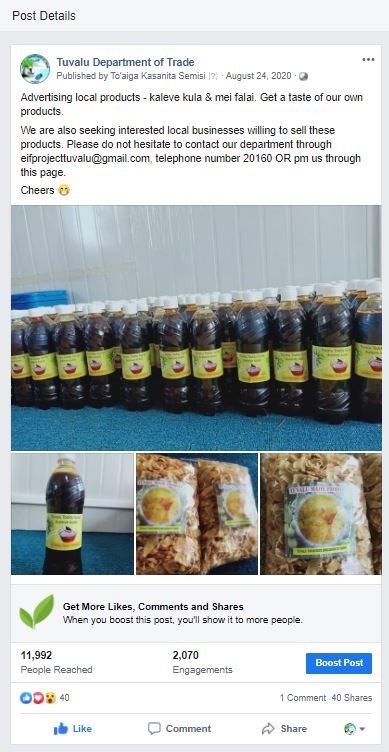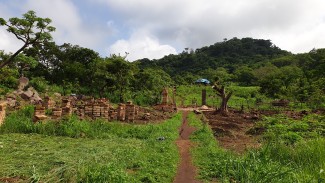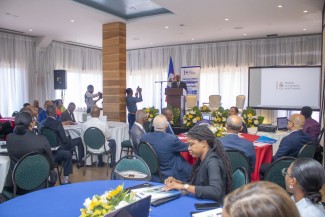Trade is key to sustainable development and growth. This knowledge can spur action from governments and businesses, but only if the word gets out.
Do you know what the ministry of trade does in your country? If you work in the field of trade, you probably do, but if not, do you?
Ministries of trade oversee and regulate trade and industry. They are responsible for the development and growth of trade within and outside a country. This is not a simple task, and one with a lot of bearing on the health of the national economy. For developing countries, especially least developed countries, trade can have a powerful impact on a country’s socioeconomic development.
Unfortunately, trade, with its complex rules and systems and intricate jargon, is often considered a specialised field and can feel inaccessible to the layperson.
Communication plays an important role bridging the gap between technical topics and the public. In the case of trade, promoting the work of Ministries of Trade or informing entrepreneurs about ways in which they can make their businesses flourish can have a positive impact on the national trade environment. Ultimately, it can lead to economic growth, sustainable development and reduced poverty.

The Enhanced Integrated Framework’s trade communications Theory of Change
This is where dedicated and forward-thinking communications professionals come in.
Online trade talks…
When Darryl Ikbal Farshid joined the Tuvalu Ministry of Trade in April 2020 as a Support Officer for the Enhanced Integrated Framework, he made it his mission to connect trade with the people of Tuvalu. Four months after his arrival, he launched the official social media accounts of the Tuvalu Ministry of Trade on Twitter, Facebook and LinkedIn.
Farshid recognised that social media was a growing trend in the Pacific region, and he considered it an essential piece of the Ministry's business marketing strategy.
"These social media platforms can actually connect us with businesses interested in trading with Tuvalu. It is a chance for them to learn more about products made in Tuvalu," said Farshid.
"A lot of things are said about Tuvalu that have to do with sea level rise or climate change. We wanted to change the narrative and demonstrate that Tuvalu has a lot of potential for trade too. That's why we decided to create official channels showcasing what local producers in Tuvalu can offer."
The Tuvalu Ministry of Trade Twitter and Facebook pages have, in a matter of months, been able to gather more than a thousand followers. Farshid and colleagues keep their audience captivated by sharing a mix of local products, events and relevant news related to trade. They are starting conversations with people in Tuvalu and the Pacific region, either by asking their inputs on the new logo of the Ministry of Trade or making them discover typical Tuvalu products.
The most popular post published by the Tuvalu Ministry of Trade was published weeks after they launched their official Facebook page. The post featured pictures of bottled red toddy, a sweet coconut syrup, and packaged breadfruit chips, a fruit native to the South Pacific region. The post reached almost 12,000 people and was shared more than 40 times.

"The post really was a success because, all of a sudden, people here in Tuvalu and around the region, were able to say, 'Hey, I think Tuvalu produces something that can be exported!' They had no idea that such breadfruit chips could be packaged and made ready for export or that bottles could be filled with red toddy syrup and labelled for export. When we published that post, it really got the people of Tuvalu thinking about the role of trade in their lives."
According to Farshid, the presence of the Tuvalu Ministry of Trade on social media has been beneficial for the Ministry because it has created a link between them and business owners, traders, donors and generally the people of Tuvalu. These are all people that have the power to support and implement the trade agenda in the country.
…to trade stakeouts
Lihaelo Nkaota in Lesotho is doing similar work but using a different medium: journalists.
Nkaota has been a press officer at the Lesotho Ministry of Trade for 14 years. Her work leads her to promote the initiatives, policies and decisions of the Ministry to national media.
She has the same approach as Farshid when it comes to raising the visibility of trade in her country. She understands the importance of making trade issues accessible to everyone.
Seeing how journalists were struggling to understand complex trade issues and report them accurately, she organized trainings for them. The first one covered the African Continental Free Trade Agreement (AfCFTA) and what it meant for Lesotho and its trading partners.
"We felt it was critical to dedicate a whole training session to one trade topic and unpack it carefully to the media. We wanted to generate a platform where it was possible for them to ask questions. It was also a way for us to make sure that journalists were comfortable covering specific trade topics," said Nkaota.
The impacts of the training were immediate. A week later, there were four articles on the AfCFTA published in national media outlets and one on the role that the Enhanced Integrated Framework plays in fostering inclusive and sustainable trade in Lesotho. Nkaota received numerous interview requests to find out what the Ministry was doing to get the private sector ready to take advantage of the AfCFTA.
For Nkaota, the real reason behind this training was to make trade more prominent in the national media. "I want to generate interest on trade issues because I know what impact trade can have on the economy. It has such a great impact on livelihoods, and we need to make people realise that trade affects their daily lives. The information that is disseminated by media can influence business decisions and as a result can have a trickle-down effect on economic growth."
The pandemic underscored the ubiquitous presence of trade, making it explicit that having access to daily staples requires an intricate trade network and complex value chains. The disruption of these networks and value chains shed light on the critical importance of trade, whether in getting a fresh mango at a supermarket, spare parts for a shea processing machine or essential medicines, like vaccines.
People like Farshid and Nkaota understand the vital role that trade plays in the economic development of their country and are making sure that it gains the place it truly deserves in national conversations.
Now, who wants to get in the business of importing breadfruit chips?
If you would like to reuse any material published here, please let us know by sending an email to EIF Communications: eifcommunications@wto.org.



